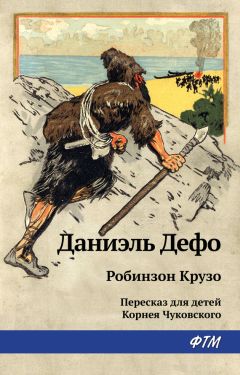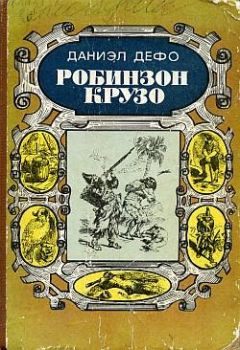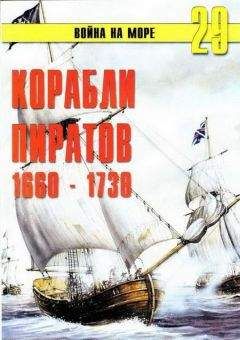Dewey Lambdin - The King`s Commission
"I refer more to awards of territory to recompense the French and Spanish for their assistance and material support, sir," Cowell huffed, and the others looked at Alan as though he had broken wind at table-such was simply not done! Lieutenant Colonel Peacock glared as though Alan were one of his junior officers, he'd be in irons that instant.
"We shall not give them one acre, sir, but what the Rebels may do is open to question, and a formal military expedition to express our displeasure at any reward of territory is simply not in the cards. What we may do informally, though, is another matter entirely," Cowell said with a sly grin. "And there are methods by which the French and Spanish, who are already out untold riches, and in financial difficulty by their support of this unlawful Rebellion, may be discomfited and confounded in those territories they already possess, souring their appetites for more."
Cowell turned to stare at Alan, expecting him to open his mug and make some comment, but Alan had learned his lesson and gave him a beatific smile of encouragement, one of his best eager-but-innocent expressions, which made Lilycrop cough into his fist to hide a smile.
"Pipes, gentlemen?" Admiral Rowley offered, obviously fidgeting for the soothing fumes of tobacco. He rose and fetched out his own tub of tobacco, a large-mouthed stone crock aromatic with Virginia leaf, and then chose a clay church-warden pipe from the ample selection contained in a plush-lined box large enough for a brace of dueling pistols.
"Not for me, thankee, milord," Alan said to his offer.
"Best to learn how," McGilliveray told him. "It shall come in handy soon."
"Well, if you insist." Alan shrugged and took one of the pipes. As the crock made its way down the table, along with the port, he stuffed crumbled leaf into the bowl, got a light with a paper spill from an overhead silver lantern, and fired the pipe up.
Damned silly practice, he thought, after almost coughing his lungs up. From then on, he merely rolled the smoke around in his mouth, not trying to inhale as the others did, slightly sickened by the taste and the sharpness of the hot smoke on his palate, which until then had been doing just fine with supper and wine to savor.
"A blend, Sir Joshua?" Cowell smirked, pacing about the cabins and puffing away like a house fire. "Quite pleasant. Quite."
"Just a touch of Turkey, sir, to give the Virginia some character," Admiral Rowley nodded, pleased at Cowell's opinion of his blend. "From Latakia, I believe. Taken from a prize last month. Usually it's more suited to snuff material, but it does give the blend some fire."
"Yes, it does have bite under the mellow," Cowell agreed. "Now, as to how we may foment confusion to our foes, gentlemen, let us take a look at the Spanish situation in the Americas. If you may allow me to refer to this map." He produced a large map, big as an ocean chart and spread it out on the polished mahoghany dining table, anchoring the corners with glasses and bowls.
"We shall most likely lose East, or British, Florida at the Peace Conference," Cowell pointed out. "Spanish forces have evicted us from our last bastion at St. Augustine, and from the mouth of the St. John's River."
"God give them joy of it." Sir Joshua shivered. "A pestilential place, from my experience."
"As you see, just before the war, the southernmost colonies of Florida and Georgia were just beginning to draw colonists," Cowell lectured, using the long stem of his church-warden pipe as a pointer. "Note the topography of the Virginias and the Carolinas, separated from the interior by the Appalachians, all the way down to here, where they end in Georgia, from whence a great coastal plain stretches all the way to the great river of the Mississippi, and probably beyond. The new Rebel nation has not crossed over these mountains yet, though they probably shall in future. To the north, the Iroquois nations, still favorable to British interests and dependent on us for trade goods. They shall give our Rebels pause, should they attempt colonizing westward."
"Bankrupt the devils to maintain a standin' army against the northern Indians," Lieutenant Colonel Peacock barked with amusement. "Let 'em see what the cost of their folly is!"
"With the French evicted from Canada, we can maintain good relations with, and ministries to, the northern Indians, as a check to any Rebel plans for expansion to the north and west," Cowell said with a firm nod or two.
"And we propose to do the same with the southern Indians," the admiral added, puffing away contentedly.
"That is exactly our plan, sirs," Cowell went on quickly. "Now, there will be Rebel influence in the South, unfortunately. Charleston was the center for trade inland for many years. That city's merchant adventurers extended far to the west and south, and we may expect no less in future, a trade, I wish to point out, that shall no longer be British. Where the border shall be drawn, we have no idea, but Spain rules the rest of the coast, West Florida and all. Fortunately for us, they rule pretty much in name only. Their normal methods of conquest, such as they employed in New Granada and New Spain were not followed on the mainland. Small church settlements, a few troops to keep order, but few European settlers, and no encomienda system to exploit the downtrodden Indians in slavery on large estates and fiefs. The land does not support the Colonies for that reason, and the Spanish are losing money on the bargain, though the soil inland past the coastal marshes is quite fertile. One of the reasons they have not moved inland is the southern Indians. The entire region swarms with various tribes, some of them powerful enough to give anyone pause, and none of them willing to have anyone settle among them-British, Spanish, or Rebel. They are, or could be, a potent counterpoise to any further settlement west of Georgia. Properly armed and trained with European arms, these Indians could provide us with a drain on the new Rebel economy, a force that could limit any westward expansion, and a means to bankrupt the Spanish treasury, making the Spanish think twice about keeping the region; in short, a southern Iroquois League."
"We want to establish good relations with the southern Indians," the admiral summed up, shifting in his chair with impatience at Cowell's plodding oratory. "We wish to give the Spanish fits over their possessions in the South, making them more amenable to our re-taking the region at the peace negotiations. And we want to nail down the western border of the Colonies in the meanwhile so we may exploit this great and fertile coastal plain, instead of the Jonathons, the Frogs or the Dons. Look at the possibilities. Great rivers pouring down from the interior. Here at the mouth of the Mississippi, of the Mobile, this bay at Pensacola, even here at Tampa Bay. They could be important naval bases in time of war. Why should the Dons have 'em-or the Jonathons?"
"And, for the nonce, with strength enough, we could bleed both the Rebel and the Spanish treasuries trying to keep large forces on the frontier," Cowell finished with a dramatic sigh, and sank down into his chair as though exhausted by the effort of being so clever and erudite.
"Catch 'em in a nutcracker," Lieutenant Colonel Peacock said chearly, waving a real nutcracker at them. "Canada and a new British Florida, with the Rebels squeezed to death between, ha ha!" To prove his point, he crunched a walnut to nibble on.
"The only problem being," Sir Joshua frowned, "that at present we have no entrйe, with the Dons in possession of the coast."
"Ah, but a most weak and porous possession, Sir Joshua!" Cowell chuckled. "A few Guarda Costa luggers, little better than fishing smacks. Perhaps one full regiment, supported by native levies of doubtful worth. Had we the troops, and the inclination, we would have swept the area clean years ago, but for Washington and our priorities further north. That is where you two gentlemen come in."
"Us, I see." Lilycrop pondered, slurping some port.
"Can't get there without the Navy, ey?" Cowell laughed.
"So what is it exactly you want us to do, milord?" Lilycrop asked of his admiral.
"Your brig o' war, Shrike, is shallow-drafted. You can get close inshore in what… two fathom of water?"
"She'll draw about ten foot proper laden, milord."
"Even better. The bays are shallow along this coast, even at high tide, and the passes into the sound through the barrier islands are of a piece with the Bahamas, or the coast of Cuba, which you gentlemen have done such a thorough job of ravaging lately," Sir Joshua Rowley told them. "In addition, you took a Spanish Guarda Costa sloop on your last cruise, of a type not very much unlike anything the Spanish would expect to see along the coast. False flag, false uniforms for your officers. Shrike was originally a trading brig, so her presence under Spanish colors would be unremarkable. We propose that you, disguising yourselves as a Don packet-brig and escort, go inshore, drop off a party who shall make their way inland to treat with the Indians. And if the negotiations go well, deliver to the Indians a quantity of arms suitable to their needs, along with such gifts as may tempt them to side with our interests."
"How far inland, milord?" Lilycrop asked, looking a trifle dubious. "And how long are we to linger off this coast?"
"Mister McGilliveray?" Cowell asked.
"The tribe we wish to talk with are the Lower Creeks, sirs," McGilliveray said, swiveling about to look at Lewrie and Lilycrop.
He stood and swung the large map about so the military representatives could see it better. "In the peninsula of Florida, the people are pretty much shattered. Timucua, Ocale, several other tribes mostly reduced by Spanish or British weapons or disease, or rum. West of the peninsula, pretty much the same for the Apalachee. But to the north, there are Muskogean peoples, whom the colonists call Upper Creeks and Lower Creeks. There are also Seminolee, Creek relatives who speak Muskogean. They're fairly powerful on their own. Their influence shall be most helpful to me inland."
"You, sir?" Lilycrop asked.
"Mister Cowell and I are your passengers, sir," McGilliveray said with a small grin. "Do you land us here, sir, at Apalachee Bay east of the Ochlockonee River. There are marshes and mangrove swamps for cover, so we may take the Guarda Costa sloop up-river to where it joins the larger Apalachicola, behind any coastal patrols. Two days on the water, perhaps forty miles? Then we pick up horses from the Seminolee and march two days overland to the large lake formed by the Chatahooch River. Or if the sloop will not serve, perhaps a pair of ship's boats with sails."
"And how long to negotiate, sir?" Lieutenant Colonel Peacock asked.
"Two more days, if all the important mikkos are available," McGilliveray speculated. "It might be a week if they had to be summoned. They will be cautious, so it might take a total of two weeks altogether before they make up their minds, including the trek inland. Then say a third week to get representatives from the Creeks at the mouth of the river here to pick up the arms. Or pick up our shore party should we fail to convince them."
"Damme, hide a ship in the marshes for three weeks?" Lilycrop almost exploded, turning a cherry hue. "More like hide two ships, Shrike at the mouth of the river, and the sloop way up here, assumin' the damned thing may get that far, which is a rather large assumption, ain't it? And just what forces do the Dons have around this Apalachee Bay, I ask you? What about these coastal Indians? They goin' to sit on their duffs and just let us set up housekeepin', or are they goin' to run off and sell us up to the bloody Dons?"



